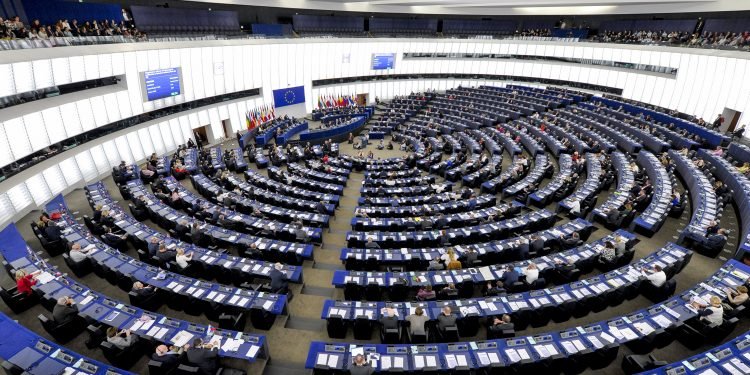Brussels (Brussels Morning) A vote in the European Parliament gave the green light for improving EU water quality yesterday.
The vote saw a majority of MEPs (622) recognising an urgent need to reduce pesticides in the water and step up measures to clean rivers, lakes, coastal areas, and other water sources.
Yesterday’s outcome has put in place a 2027 target for the implementation of EU legislation, ensuring all surface and ground water is of good quality.
“Water is a precious commodity and in the coming years it’s going to be the most precious on the planet. We’re going to have to deal with it with extreme care”, said Identity and Democracy MEP Georg Mayer.
Yet, MEPs overall reject any attempt — in practice — to treat water as a commodity. The Parliament considers access to water a human right and thus not applicable to be traded on stock exchanges, as it would “deny the universal right to water”, says Mayer.
WFD lacks pragmatism
Despite being considered an “adequate governance framework for managing water”, current water legislation — the Water Framework Directive (WFD) — has, in practice, not delivered and lacks pragmatism, MEPs complained in yesterday’s session.
Poor performance, they said, was caused by “inadequate funding, particularly slow implementation, and insufficient enforcement”, according to Parliament.
“The precautionary and polluter-pays principles are not being implemented properly, and many member states are using exemptions too broadly”, MEPs added.
Abundance does not mean access
“Only 2.5% of the water in the world is drinking water, of this only about 0.007% can be drunk, the rest has to be cleaned”, said EPP MEP Pernille Weiss.
The Parliament urged member states to comply with existing EU water legislation, particularly on the reduced use of fertilisers and pesticides. Specifically, MEPs called on a 50% reduction of pesticide use by 2030, an ambition that feeds on the Fork to Farm and Biodiversity strategies.
“Water and water policy is something which has been of great concern for us in the EU for over twenty years, a highly controversial and sensitive issue”, said the German Minister of State for Europe, Michael Roth, who attended the Parliament’s plenary.
“What surprises me is that, in this house [European Parliament] we’re talking about access to water and all sorts of things about regulating water while we haven’t even managed to provide hot water in a tap”, added MEP Georg Meyer.
According to data from the European Environment Agency, water stress affects over 100 million people, one-third of EU territory, all year around.
As a result of climate change, the Commission expects further deterioration of Europe’s water situation if temperatures keep rising. “Water is no longer the problem of a few regions, but now concerns all 500 million Europeans”, warns the EU executive.
Political pledges
The Parliament’s work on water issues responds to the first-ever successful European Citizens’ Initiative — “Right2Water” — which gathered 1.6 million signatures, in 2015, in support of improving access to safe drinking water for EU citizens.
The debate has been ongoing and during the Gothenburg Summit in 2017, EU leaders have proclaimed the right to access essential services of good quality, including water.
Last year, a review of the water legislation concluded that despite its adequacy, more work needs to be done on “investments, implementation, integrating water into other policies, chemical pollution, administrative simplification and digitalization”.
The NGO Water Europe has urged EU governments and the Commission to preserve the WFD standards.
“Water Europe aims to achieve a Water-Smart society. Therefore, we welcome this resolution, which supports an effective implementation of the EU water standards and also encourages Europe to remain ambitious and go several steps further.
It is our societal responsibility to consider the value of water in all its dimensions, including the untapped opportunities embedded in wastewater streams and digital water”, Loïd Charpentier from Water Europe told Brussels Morning.
Through digital water, Charpentier said Water Europe advocates for a “society in which the true value of water is recognised and realised, and all available water sources are managed in such a way that water scarcity and pollution of groundwater are avoided”.




